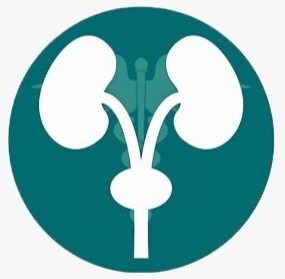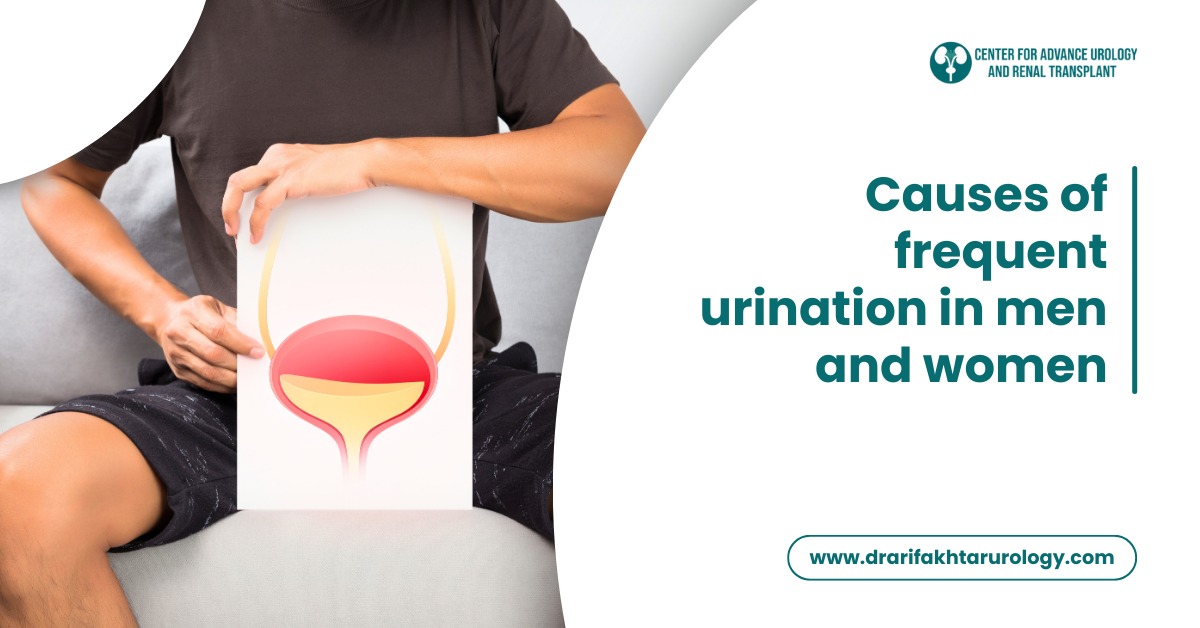Introduction
Frequent urination can be disruptive, inconvenient, and sometimes worrying. While occasional changes in bathroom habits may be harmless, a persistent urge to urinate more often than usual could indicate an underlying medical concern. Men and women experience urinary problems differently, but many causes overlap. Understanding the frequent urination causes is important for seeking timely medical advice and ensuring the issue is not overlooked.
Frequent Urination Causes in Men and Women
Frequent urination means needing to pass urine more than eight times in a 24-hour period, or waking up multiple times at night to urinate. It may be linked to lifestyle factors, but often, there are medical reasons for frequent urination.
Common Causes in Both Men and Women
- Overactive bladder: The bladder muscles contract involuntarily, creating a sudden urge to urinate.
- Urinary tract infections (UTIs): Infections irritate the bladder, making urination more frequent and sometimes painful.
- Diabetes: High blood sugar increases urine production, leading to more frequent bathroom visits.
- Excess fluid intake: Drinking large amounts of water, caffeine, or alcohol can increase urination.
- Medications: Diuretics, often used for high blood pressure, can cause increased urination.
Urinary Problems in Men
Men may face unique urinary challenges due to anatomical and hormonal differences. Some key frequent urination causes in men include:
- Enlarged prostate (Benign Prostatic Hyperplasia): A common condition after age 50, where the prostate presses on the urethra and affects urine flow.
- Prostatitis: Inflammation of the prostate can lead to urgency, pain, or difficulty urinating.
- Prostate cancer: Though less common, urinary problems in men such as frequent urination, weak urine stream, or blood in urine may be linked to cancer.
Urinary Problems in Women
Frequent urination in women is often related to reproductive and hormonal changes. Some frequent urination causes specific to women include:
- Pregnancy: The growing uterus puts pressure on the bladder, increasing frequency.
- Menopause: Hormonal changes can weaken bladder muscles and contribute to overactive bladder causes.
- Pelvic floor disorders: Weakness in pelvic muscles may result in poor bladder control and more frequent urination.
Medical Reasons for Frequent Urination
Beyond gender-specific factors, some broader health conditions can explain why men and women urinate frequently:
- Kidney disorders: Conditions affecting kidney function may alter how urine is produced and eliminated.
- Interstitial cystitis: A chronic bladder condition causing urgency, pressure, and discomfort.
- Neurological disorders: Diseases like multiple sclerosis or Parkinson’s can interfere with bladder signals.
These conditions highlight that frequent urination causes can be linked to more than just the bladder itself.
Frequent Urination Causes and Treatment
Treatment depends on the underlying cause, which makes medical evaluation essential. Some approaches include:
- Lifestyle adjustments: Reducing caffeine, alcohol, and late-night fluid intake can help.
- Bladder training: Gradually increasing time between bathroom visits strengthens bladder control.
- Pelvic floor exercises: Beneficial especially for women, these exercises improve bladder support.
- Medication: Overactive bladder causes may be managed with prescribed drugs that relax bladder muscles.
- Medical procedures: In cases like enlarged prostate, minimally invasive procedures or surgery may be required.
Conclusion
Frequent urination is not just an inconvenience—it can point to underlying urinary problems in men and women that require medical attention. From overactive bladder to diabetes or prostate conditions, the causes vary widely. Understanding the frequent urination causes, along with timely treatment, helps protect long-term urinary health and improves quality of life. If symptoms persist or worsen, seeking medical advice should never be delayed.




